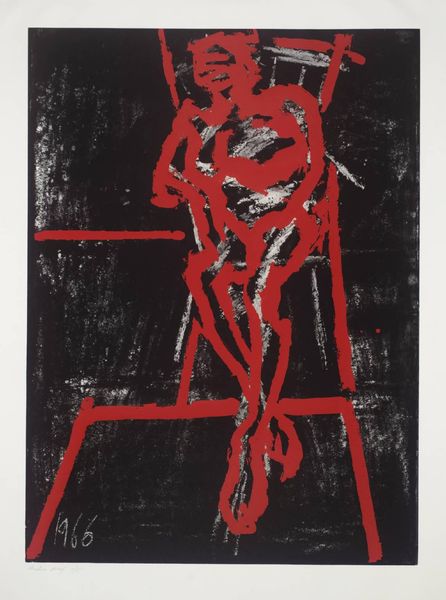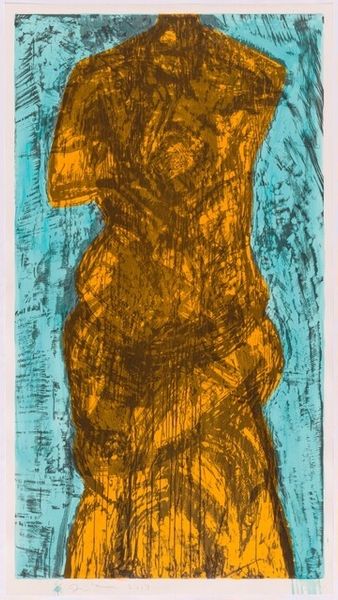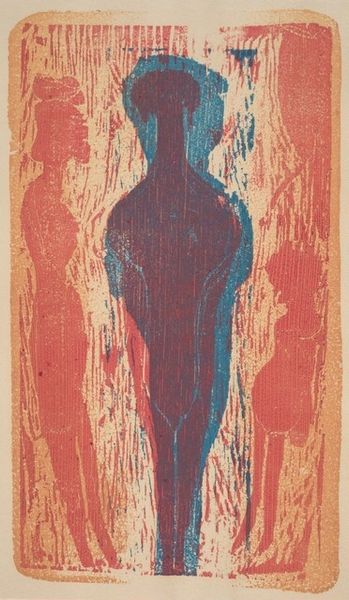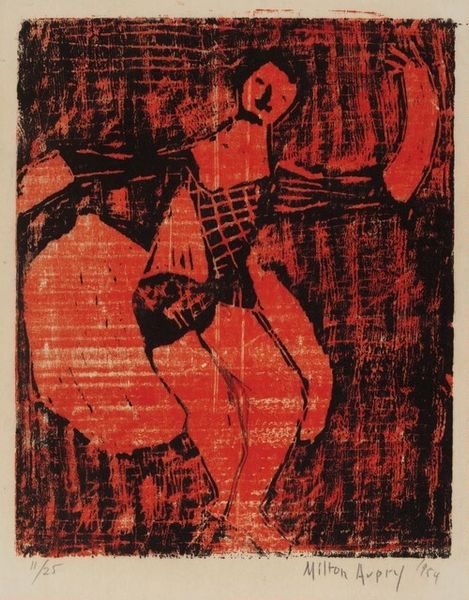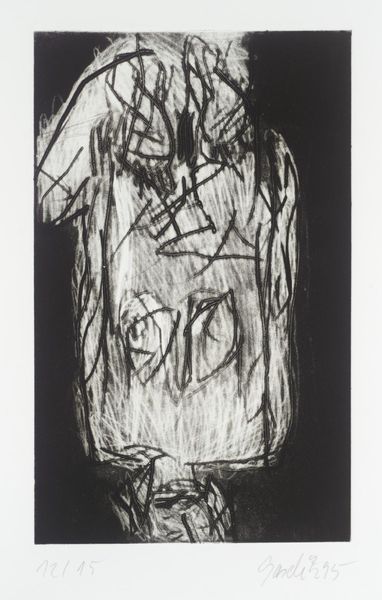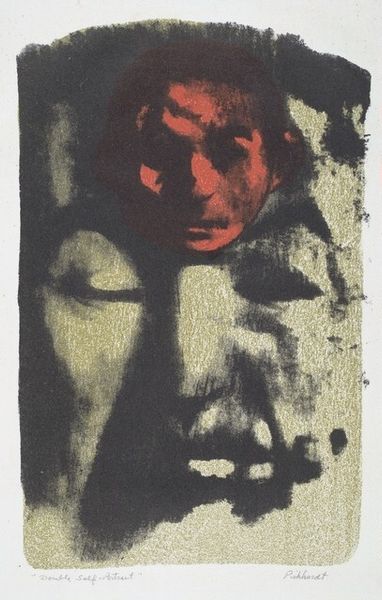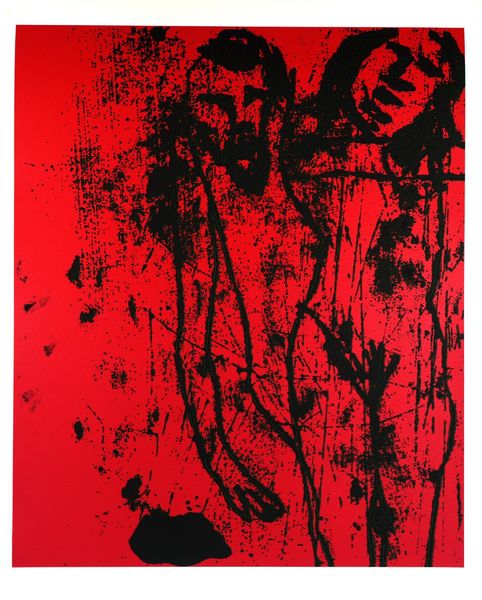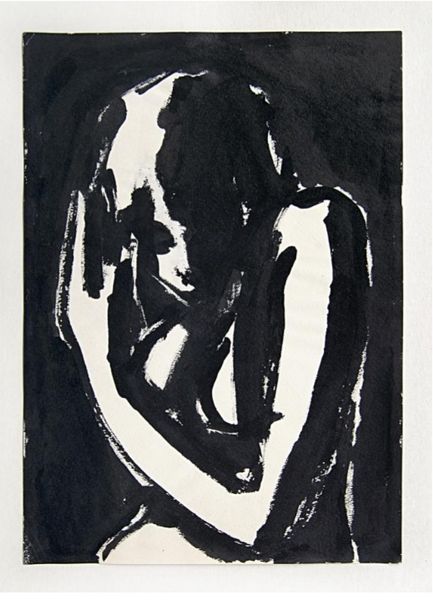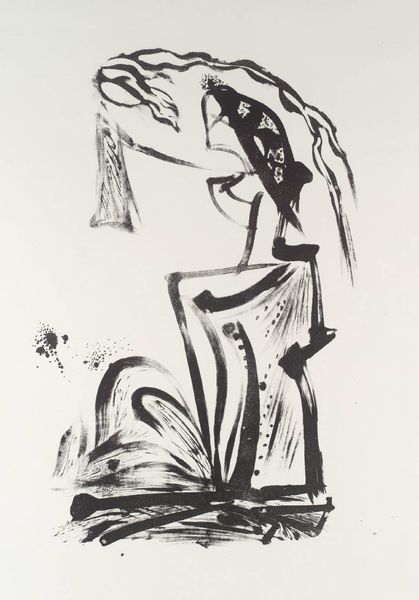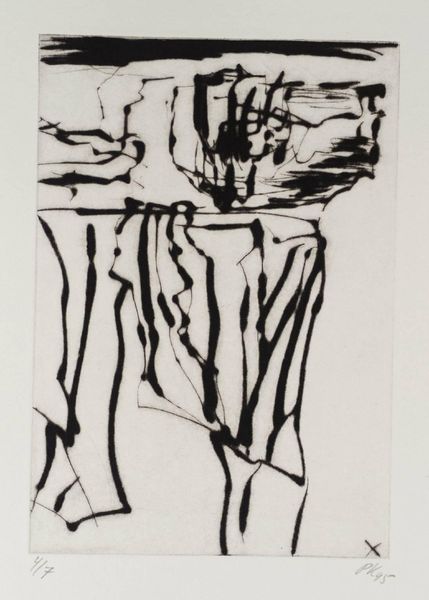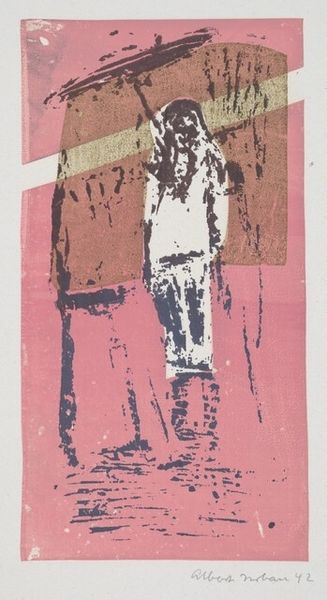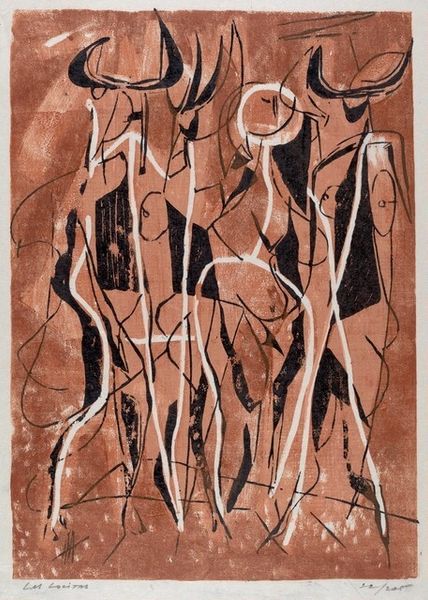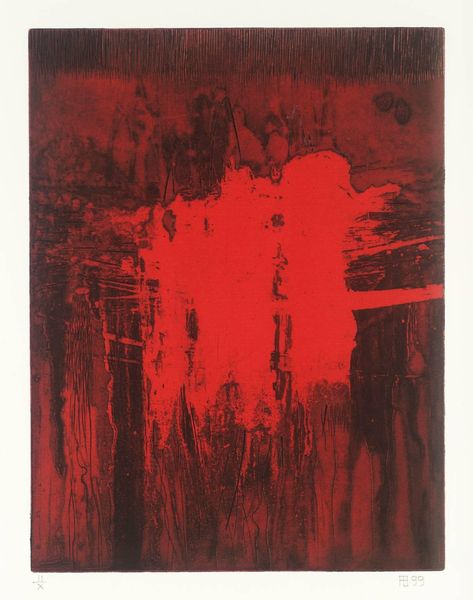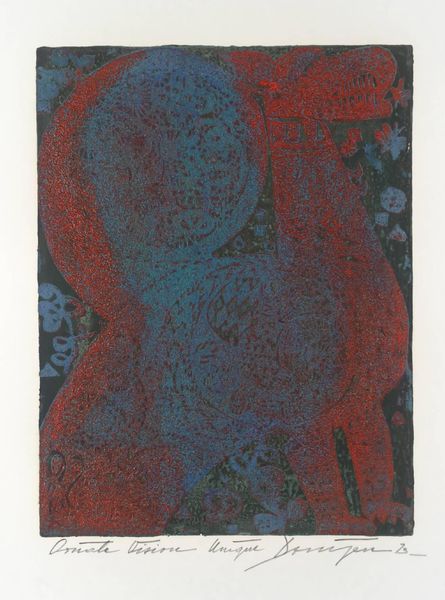
#
portrait
# print
#
figuration
#
linocut print
#
line
#
nude
Dimensions: image: 47.7 x 27.8 cm (18 3/4 x 10 15/16 in.) sheet (irregular): 62 x 52.6 cm (24 7/16 x 20 11/16 in.)
Copyright: National Gallery of Art: CC0 1.0
This is Leonard Baskin’s “Old Man Seen from Behind,” a woodcut printed in black on a vibrant red ground. The process of woodcut printmaking is a labor-intensive one. The artist carves an image into a block of wood, then inks the surface and presses paper against it to create a print. Here, the material quality of the wood itself is crucial. Baskin's cuts are assertive, creating a bold, graphic image with a tactile quality. Look closely, and you'll see how the wood's grain influences the texture of the print, adding depth and visual interest. The stark contrast between the black ink and the red background enhances the drama, emphasizing the figure's vulnerability and the passage of time. Baskin was deeply engaged with the history of printmaking, particularly its role in social commentary. By choosing woodcut – a medium with roots in folk art and political broadsides – he imbues the image with a sense of gravitas. The intense labor and physicality involved in the process mirrors the weight of existence etched onto the old man's body. This challenges the traditional hierarchy between fine art and craft, elevating the print to a powerful statement about humanity.
Comments
No comments
Be the first to comment and join the conversation on the ultimate creative platform.
